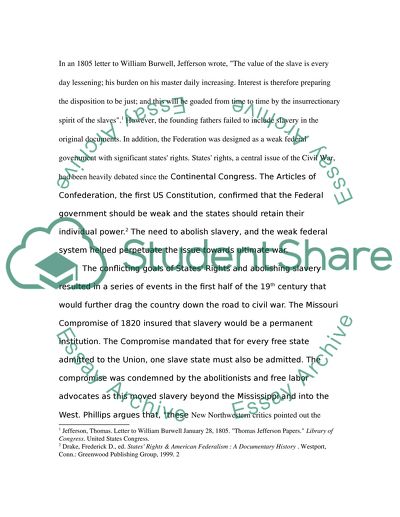Cite this document
(“The causes of the civil war Essay Example | Topics and Well Written Essays - 2500 words”, n.d.)
Retrieved from https://studentshare.org/miscellaneous/1546252-the-causes-of-the-civil-war
Retrieved from https://studentshare.org/miscellaneous/1546252-the-causes-of-the-civil-war
(The Causes of the Civil War Essay Example | Topics and Well Written Essays - 2500 Words)
https://studentshare.org/miscellaneous/1546252-the-causes-of-the-civil-war.
https://studentshare.org/miscellaneous/1546252-the-causes-of-the-civil-war.
“The Causes of the Civil War Essay Example | Topics and Well Written Essays - 2500 Words”, n.d. https://studentshare.org/miscellaneous/1546252-the-causes-of-the-civil-war.


